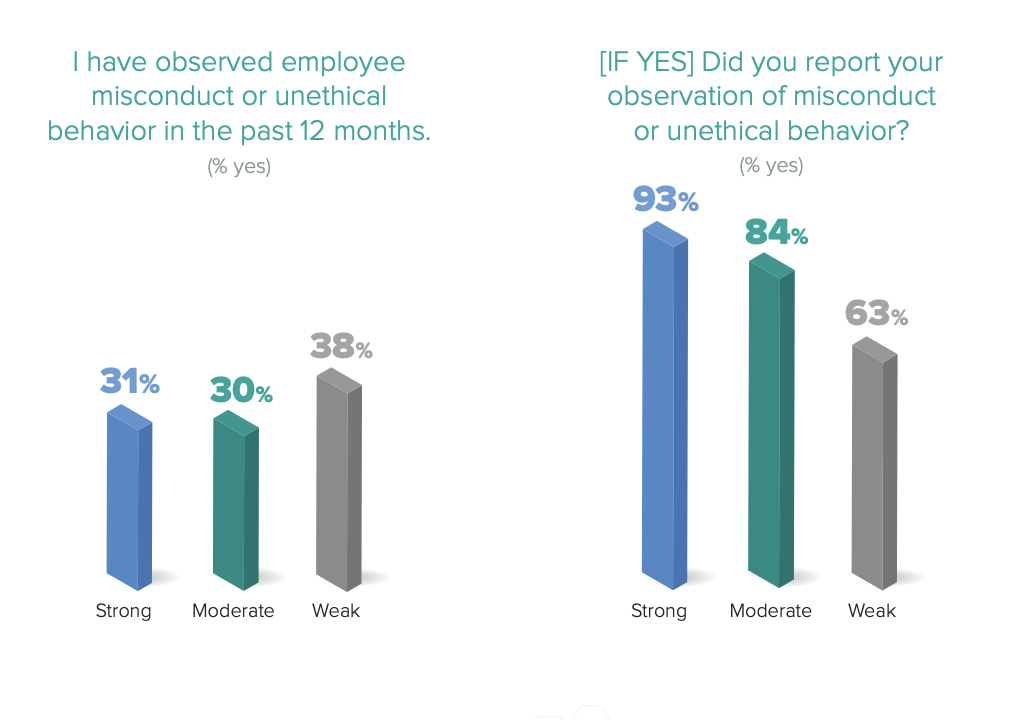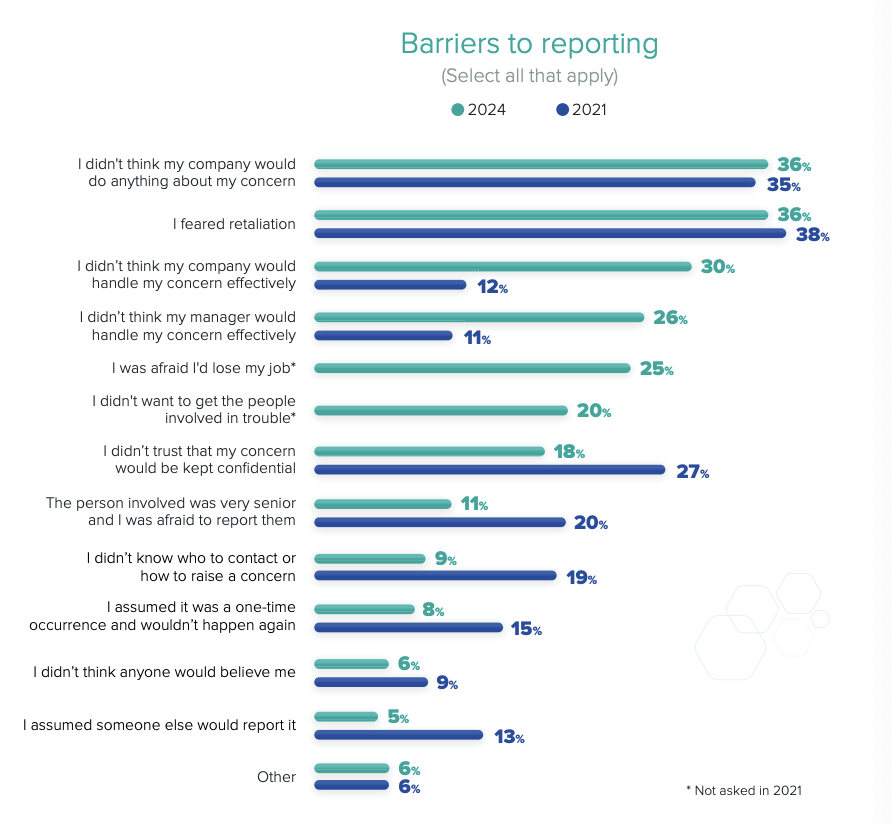One in 4 employees say it is ‘OK to interrupt the foundations if wanted to get the job completed’: report

A 3rd of staff internationally have noticed worker misconduct or unethical behaviour up to now 12 months, with such practices extra prevalent in organisations with weak office cultures.
That is in accordance with LRN’s newest Benchmark of Moral Tradition Report, which surveyed 8,500 staff at main organisations and firms from 15 totally different international locations.
It discovered that 33% of staff noticed misconduct or unethical behaviour up to now 12 months, with cases going as much as 38% for organisations with weak office cultures.
In line with the report, 79% of those that noticed misconduct or unethical behaviour reported them, with a majority elevating it with their managers (60%).
Reporting of such cases, nonetheless, have been way more prevalent in organisations with “sturdy” office cultures (93%), than these with a weak one (63%).

Supply: LRN
Obstacles to reporting unethical behaviour
Whereas most staff reported misconduct or unethical behaviour, 21% of them did not.
In line with the report, the highest barrier to reporting was the idea that their organisation would not do something about their concern (36%). In addition they feared retaliation (36%).
“The highest boundaries overwhelmingly sign a scarcity of belief within the system of procedural justice: individuals did not suppose their firm would do something about their concern or deal with it successfully, nor do they suppose it could be protected against retaliation,” the report learn.

Supply: LRN
There’s additionally a portion of staff who’ve excessive tolerance for misconduct, in accordance with the report. In truth, 23% agreed that it is “OK to interrupt the foundations if wanted to get the job completed,” whereas 14% admitted that in addition they “engaged in behaviour that violated their firm’s Code of Conduct or requirements” up to now 12 months.
Encouraging moral behaviour
In line with LRN’s report, the highly effective drivers of “principled efficiency” at work embrace:
- Perception that the corporate does not compromise values to realize enterprise goals
- Having a supervisor whom staff understand is moral
- The presence of efficiency administration and recognition programmes that reinforce and incentivise moral behaviour
- A group setting characterised by belief
- An setting the place colleagues can query actions that do not align together with your firm’s values or requirements
Sustain with the most recent information and occasions
Be a part of our mailing checklist, it’s free!
